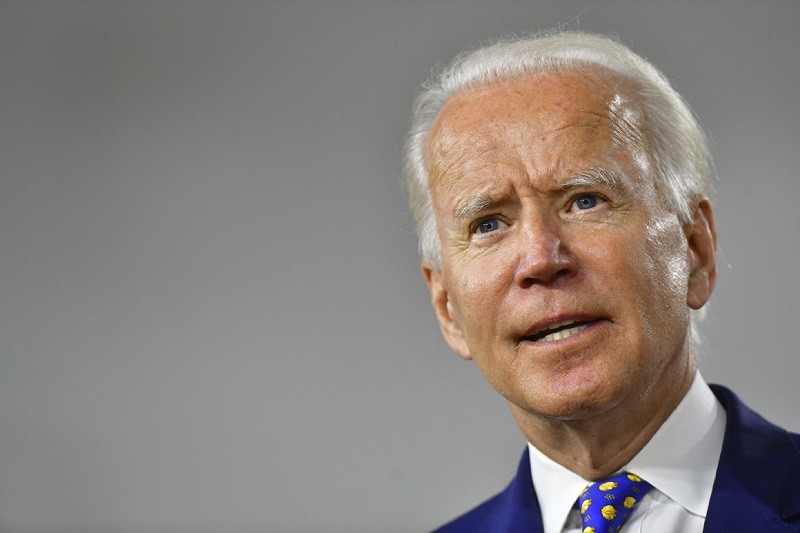Politics
Biden is taking action to support federal workers in honor of the historic federal pay equity law’s 15th anniversary

The Biden administration is taking new steps to help close pay disparities for federal employees and employees of federal contractors on Monday, the 15th anniversary of a historic federal pay equity law.
President Joe Biden stated that although there has been progress since the Lily Ledbetter Fair Pay Act was enacted in January 2009, women who work outside the home are still paid, on average, 84 cents for every dollar earned by men and that the differences in pay are even more pronounced for many women of color.
“Common-sense” measures unveiled on Monday, according to the Democratic president, “will help pay millions of workers fairly, close gender and racial wage gaps, and yield tangible benefits for the federal government and federal contractors.”
A final rule prohibiting the government from taking into account an individual’s past or current income when determining their salary for federal employment has been released by the Office of Personnel Management. According to administration officials, taking this action will ensure that compensation is determined by an applicant’s skills, experience, and expertise and help prevent pay discrimination.
Protections for workers employed by federal contractors will be provided by a similar proposal.
A proposal has been released by the Federal Acquisition Regulatory Council to forbid federal contractors and subcontractors from obtaining and taking into account information regarding a job applicant’s past compensation when making hiring or salary decisions for employees working on government contracts.
Additionally, the proposal mandates that salary ranges be disclosed in job postings by contractors and subcontractors.
According to administration officials, the plan will assist federal contractors in attracting, attracting, and retaining talent as well as enhancing job satisfaction, and performance, and lowering turnover.
The first bill that then-President Barack Obama signed into law after taking office in 2009 was the Lily Ledbetter Fair Pay Act. Biden served as the vice president.
After learning that she was being paid less for performing the same work at a Goodyear plant than her male coworkers, Ledbetter filed a lawsuit in the Supreme Court, which ultimately resulted in legislation that bears her name.
The White House Budget Office’s Shalanda Young stated that the legislation closed long-standing racial and gender wage disparities and established significant safeguards against pay discrimination.
“But we still have more work to do,” she stated to reporters during a White House-organized conference call to discuss the announcements.
During the same call, Kiran Ahuja, the director of the Federal Personnel Office, stated that when it comes to wages, the government “does a pretty decent job.”
The federal government’s pay disparity in 2022 was 5.6%, while the national average was 16%. According to Ahuja, there is less than 1% salary disparity among the federal government’s highest-ranking officials.
“The federal government is proud of this progress we’ve made,” she said. “But we also realize that any gap is unacceptable.”
According to the National Partnership for Women and Families, there is a $9,990 difference between what women earn and what men earn. With that amount, a working woman could cover approximately 64 weeks of food, seven months’ worth of mortgage and utility payments, roughly nine months’ worth of rent, or more than a year’s worth of additional child care.
-

 Travel4 weeks ago
Travel4 weeks agoBwindi’s Gorilla Tourism: Saving Wildlife, Empowering Communities
-

 Education4 weeks ago
Education4 weeks agoJoseph Curran: Using Legal Writing and Advocacy to Simplify Complex Issues for Clients
-

 Tech4 weeks ago
Tech4 weeks agoGoogle Offers New Travel-related Features To Search And Launches Its AI “Flight Deals” Tool Around The World
-

 Business4 weeks ago
Business4 weeks agoStop the Bleeding: How Unanswered Comments Increase Your CAC
-

 Cryptocurrency2 weeks ago
Cryptocurrency2 weeks agoRami Beracha Asks, Can Israel Become A Global Leader In Blockchain Innovation?
-

 Tech3 weeks ago
Tech3 weeks agoAdsPower Promo Code for 50% Off – Ultimate Guide to AdsPower Benefits (Referral Code Included)
-

 Education2 weeks ago
Education2 weeks agoForged in Fire: Nicholas Lawless Unveils Lawless Leadership – The Model Built for a World That Traditional Leadership Can’t Survive
-

 Business2 weeks ago
Business2 weeks agoOPO Group LTD Strengthens Its Global Footprint With Expanding Offices and a Modernized Trading Ecosystem
























